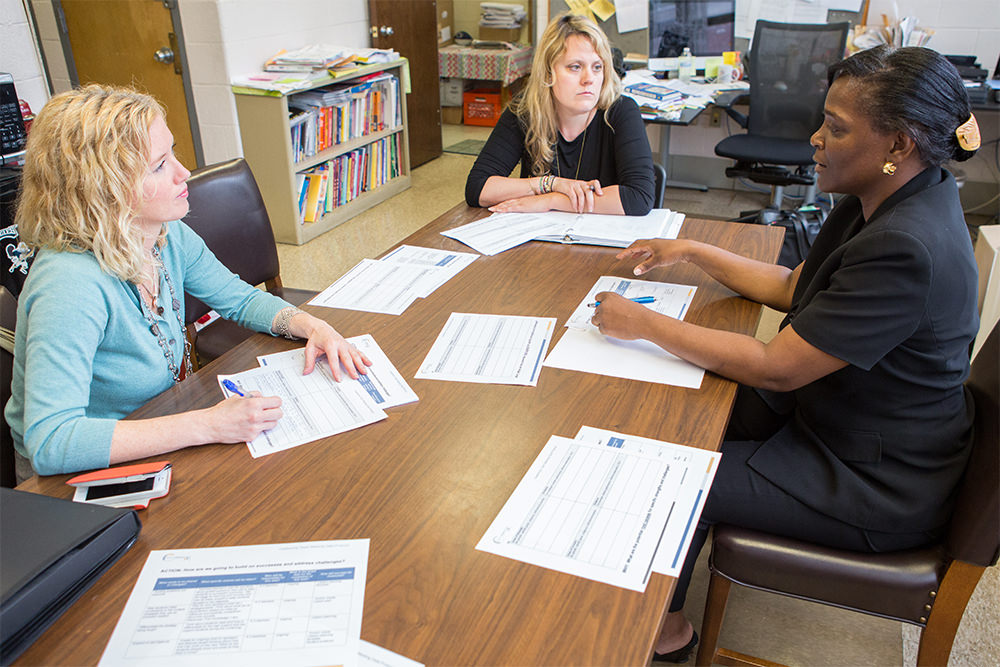Lesson study is a valuable tool for schools as they continue to look for ways to improve teaching and learning. Lesson study is a form of long-term professional development in which teams of teachers collaboratively plan, research, and study their lesson instruction as a way to determine how students learn best. Teachers focus on understanding the content of the lesson, how their students learn and what kinds of instructional activities support student learning and thinking. The opportunity to focus on one lesson allows teachers to learn about students, instruction, goals, and subject matter.
Lesson study is so powerful because it allows teachers to take ownership over lesson design and shift focus from teacher’s actions to students’ responses. When we look closely at how our students are interacting with the content of the lesson it provides us valuable insight that we, in turn, use to design future lessons.
Over time lesson study cultivates the professional learning community, collaboration and values teaching, and teachers. Not only does it allow for collaboration around lesson planning (which many schools already do) but takes it a step further and creates a structure for teachers to collaborate on implementation and revision.
In a lesson study, teachers carefully explore how student learning, thinking and behavior change as a result of the lesson. The practice of lesson study can lead to instructional improvement as teachers become more knowledgeable about how their students learn and think and how instruction affects student thinking. The cycle of lesson study includes:
- Develop Learning Goals: Team members articulate what they would like students to know and be able to do as a result of the lesson.
- Plan: The team designs a lesson to achieve the learning goals and decides how to observe and collect evidence of student learning.
- Teach and Observe: One team member teaches the lesson while others observe and collect evidence of student learning.
- Analyze and Revise: The team discusses the results and assesses student progress toward learning goals.
- Reteach and Reflect: The team teaches the revised lesson in their own rooms, shares their reflections with the team and debriefs on the learning and the process.
Lesson Study, at all phases of the cycle, is a lens of inquiry and unites many of the most powerful components of effective professional development and lesson design including:
- Thinking carefully about the goals of a particular lesson, unit, and subject area.
- Thinking deeply about long-term goals for students. What is the gap between who students are now and what we hope they will become?
- Studying and improving the best available lessons.
- Deepening teacher subject-matter knowledge by considering questions like:
- What knowledge and understanding are important?
- How is it developed?
- What are the gaps in student understanding and knowledge?
- Collaborating on planning lessons
- Anticipating student thinking
- Carefully studying student learning and behavior
- Building powerful instructional strategies – for example, develop questioning strategies that stimulate student interest and learning
An essential value of lesson study is to spur on one’s fullest development as an educator. Real change takes time and effort and may involve bumps along the road.
Lesson study is not a quick fix but a slow, steady means for a teacher to improve instruction and to build a school culture focused on inquiry and improvement.

